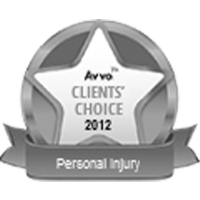What happens if you get hurt at work? Are you entitled to any benefits? Will your employer have your back? The sad but true reality is that insurance companies are not on your side. However, your workers’ compensation attorney is willing to fight for the compensation you deserve.
At Schroeder & Mandel, we’ve helped clients with workplace injury and workers compensation claims for decades. Being former claims adjusters and insurance company attorneys gives us the “insider “edge. Trust us when we tell you that there are three key things that insurance companies don’t want you to know about filing (and winning) a work comp injury claim.
- You should always report your injuries, no matter how minor.
If you get hurt at work, tell your supervisor and your HR department (if your company has one). Employee manuals usually state that all injuries must be reported. You can be fired for not reporting injuries promptly.
You never know if back pain will turn into a herniated disc, if wrist pain will progress into carpal tunnel, or if decades of working on your knees will require joint replacement surgery. Having accurate documentation of your work-related injury and symptoms could make all the difference in your benefit eligibility.
When you file your report with work, we recommend sending your supervisor or HR department a detailed email to ensure you have your own accurate and time-stamped record of your injury. Your company may document events differently than you do. Both records are important.
- You should always get checked out by a doctor.
Your work-related aches and pains are worth discussing with your doctor. If you’re unsure whether you need an appointment, send your doctor’s office a quick email, or bring it up at your next annual physical. Remember, you can always call Schroeder & Mandel for a free consultation.
If you do not have a regular doctor, you can go to any urgent care or emergency department. Don’t worry about payment. If you sustained an admitted injury at work, the workers comp insurer almost always pays for the initial treatment or exam. Tell the examining nurse and doctor that your injury and/or pain started at work.
Getting a timely, documented medical diagnosis is just as important as reporting your work injury. It’s difficult for the insurance company to refute medical records and is a critical step in proving your right to workers’ compensation benefits. More importantly, your doctor can recommend treatment or therapy options to speed your recovery. Your doctor’s treatment notes increase your eligibility for benefits can also help you advocate for reasonable accommodations at work.
- You are entitled to benefits if your injury prevents you from working.
Just because you can’t work due to an injury doesn’t mean you have to go without a paycheck. This is another reason why it is important to document your injuries with work and discuss them with your primary care physician or specialist right away
Depending on your situation, benefits may be available to you. Your attorney can help you determine which benefits you qualify for and can point you in the right direction to access them.
- Temporary Total Disability (TTD)
A wage-loss benefit paid during the period an employee is totally unable to work due to the effects of the work-related injury. - Temporary Partial Disability (TPD)
A wage-loss benefit payable to employees who are back to work but earning less than their pre-injury gross weekly wage. - Permanent Total Disability (PTD)
A benefit payable to employees who are never able to return to gainful employment. - Permanent Partial Disability (PPD)
Benefits payable for the permanent functional loss of use of the body based upon a disability schedule documented by your doctor.
- Temporary Total Disability (TTD)
Keep this knowledge in your back pocket, just in case you need it down the road. We truly hope you work your entire career without sustaining an injury on the job. But if you do, Schroeder & Mandel is here to help, we’re ready to fight for you – at no cost out of your pocket – because we work on a contingency fee. If we don’t recover any benefits for you, there is no fee due to us. Contact us anytime for a FREE consultation.
















